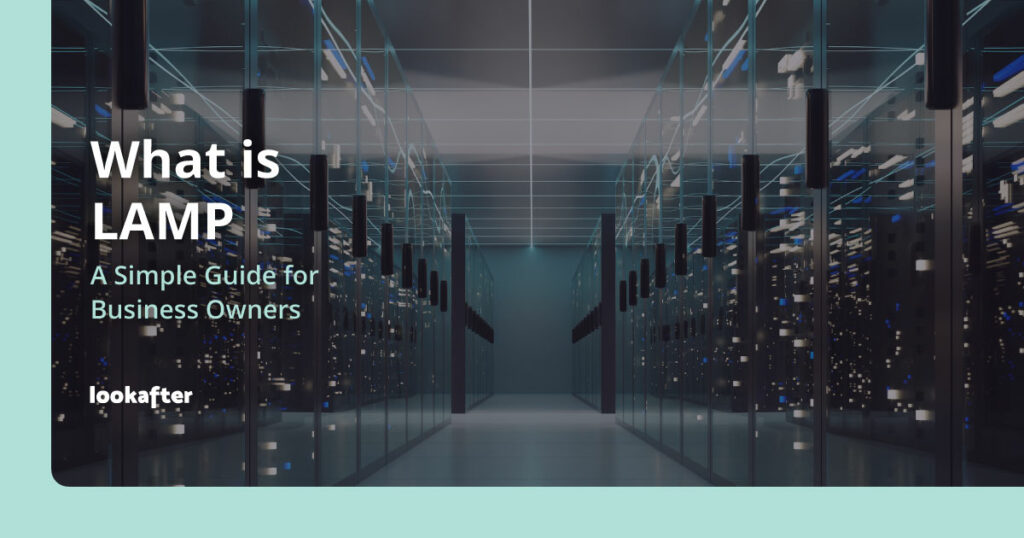Home > Empowering Tips > What is LAMP: A Simple Guide for Business Owners

If you’re a business owner or employee looking to build a website, you’ve probably come across the term “LAMP”. It sounds technical, but don’t worry — you don’t need to be a tech expert to understand what it is and why it matters. In this article, we’ll break down LAMP in simple terms, explain how it works, and help you decide if it’s the right solution for your business website.
What is LAMP?
LAMP is an acronym that stands for four key components:
- Linux: The operating system that runs the server.
- Apache: The web server software that delivers your website to visitors.
- MySQL: The database system that stores your website’s data (like user information, blog posts, or product details).
- PHP: The programming language used to create dynamic content on your website.
Together, these four technologies form a powerful, open-source platform that’s widely used to build and run websites and web applications. LAMP is especially popular for websites that require dynamic content, such as blogs, e-commerce stores, or sites built with a Content Management System (CMS) like WordPress, Joomla, or Drupal.
How Does LAMP Work?
Imagine your website as a restaurant. Here’s how LAMP fits into the picture:
- Linux serves the foundation — the kitchen and dining area where everything happens.
- Apache acts the waiter — it takes orders (requests from users) and delivers meals (your website’s content).
- MySQL functions as the pantry — it stores all the ingredients (data) needed to prepare the meals.
- PHP operates as the chef — it takes the ingredients and turns them into a finished dish (dynamic content).
When someone visits your website, Apache receives the request, PHP processes the data from MySQL, and Linux ensures everything runs smoothly. The result? A fast, functional, and dynamic website that can handle everything from blog posts to online sales.
When Do You Need LAMP?
You need LAMP if you’re building a website that requires dynamic content and a database. Here are some common scenarios:
- You’re Using a CMS: If you’re building a website with a Content Management System (CMS) like WordPress, Joomla, or Drupal, you’ll need LAMP. These platforms rely on PHP and MySQL to manage content, users, and other dynamic features.
- You’re Running an E-Commerce Store: Online stores need databases to manage products, orders, and customer information. LAMP provides the tools to handle these requirements.
- You Need User Interaction: If your website allows users to log in, leave comments, or submit forms, LAMP is essential. It enables these interactive features by connecting the front end (what users see) with the back end (where data is stored).
- You Want Scalability: LAMP is highly scalable, meaning it can grow with your business. Whether you’re starting small or planning for high traffic, LAMP can handle it.
LAMP vs. HTML Hosting: What’s the Difference?
If you’re new to website building, you might be wondering how LAMP compares to simple HTML hosting. Here’s a quick breakdown:
- HTML Hosting: This is ideal for static websites — sites with fixed content that doesn’t change often. For example, a basic brochure website with a few pages (Home, About, Contact) can run on HTML hosting. It’s simple, affordable, and doesn’t require a database or server-side scripting.
- LAMP Hosting: This is for dynamic websites that need to pull data from a database or allow user interaction. If your website needs a CMS, an online store, or any kind of dynamic functionality, LAMP is the way to go.
Wrapping Up
If you’re planning to build a website with a CMS, an online store, or any kind of dynamic content, LAMP is the foundation you need. It’s reliable, scalable, and widely supported, making it the go-to choice for businesses of all sizes.
Ready to get started? Start your LAMP hosing journey today and watch your business grow online!